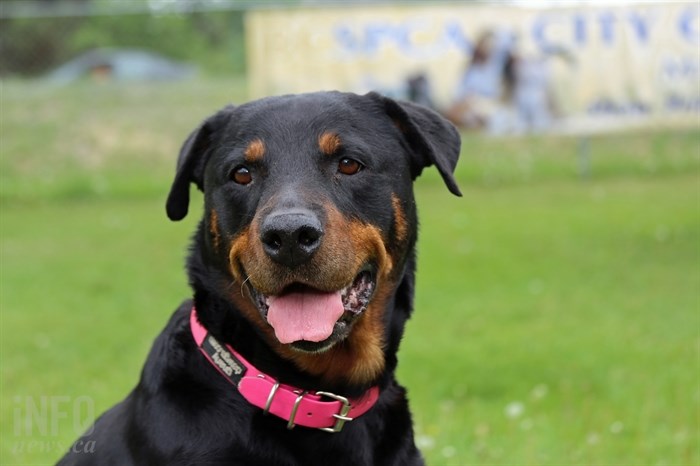
(JENNIFER STAHN / iNFOnews.ca)
September 17, 2020 - 6:00 AM
A South Okanagan veterinary clinic has some tips for residents to help keep their pets safe with the smoke from wildfires burning in the U.S. West Coast hanging over the southern Interior.
Katie Craig, a veterinary assistant and manager at the South Okanagan Animal Care Centre in Penticton, said the clinic hasn't seen a huge increase in pets coming into the clinic with issues related to the wildfire smoke.
Most people seem to be aware to keep their pets indoors, she said.
“Often times they have a few more sneezing effects and coughing with the wildfire smoke, so it’s watching them and making sure they’re still eating and drinking,” she said.
Craig recommended owners to take their pets to a vet if the animals appear lethargic, are coughing or sneezing excessively, have stopped eating or don’t appear to be themselves.
READ MORE: Improved air quality in Okanagan, Kamloops won't last
Smoke has the ability to cause long-term health impacts, especially if the pets have had pre-existing health conditions, she said.
Craig recommends pet owners keep their air filters in their homes clean and working properly, don’t take pets on long walks or hikes, and keep them indoors with the exception of going to the bathroom outside.
“I would say this is the worst wildfire smoke we’ve had in a while,” she said.
As most animals tend to spend their time closer to ground, they are usually spared – since smoke is likely to hover higher in the air. Certain animals like cats, can be exposed to smoke by they groom themselves, with smoke potentially sticking to their hair, according to the B.C. SPCA.
Certain dog breeds are more prone to having issues in smoky conditions. One example includes dogs that are brachycephalic – these are dogs have shorter faces. Brachycephalic dogs are already at risk for respiratory complications, so anything that could compromise their breathing could be a serious concern, according to the SPCA.
To contact a reporter for this story, email Carli Berry or call 250-864-7494 or email the editor. You can also submit photos, videos or news tips to the newsroom and be entered to win a monthly prize draw.
We welcome your comments and opinions on our stories but play nice. We won't censor or delete comments unless they contain off-topic statements or links, unnecessary vulgarity, false facts, spam or obviously fake profiles. If you have any concerns about what you see in comments, email the editor in the link above.
News from © iNFOnews, 2020